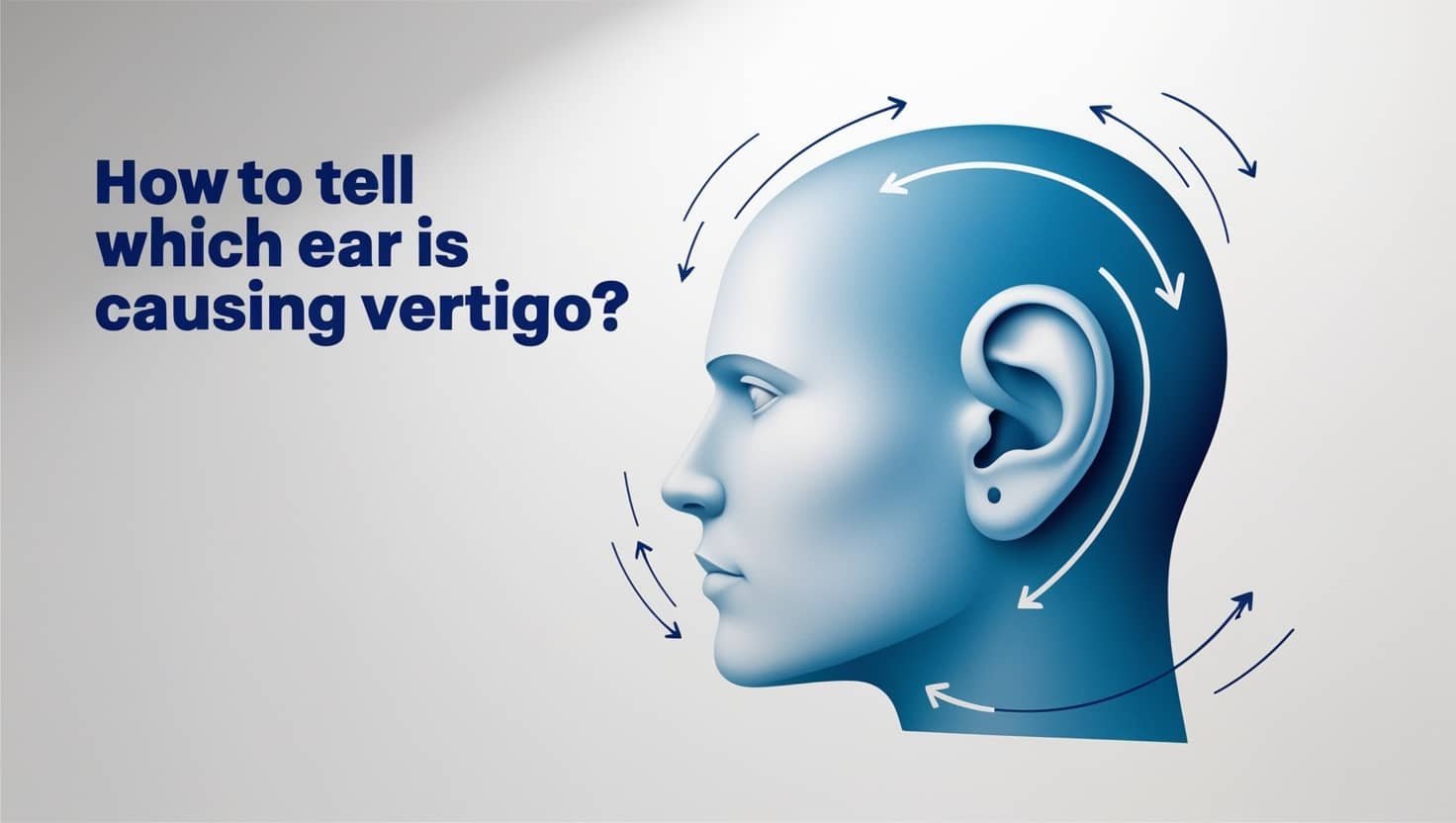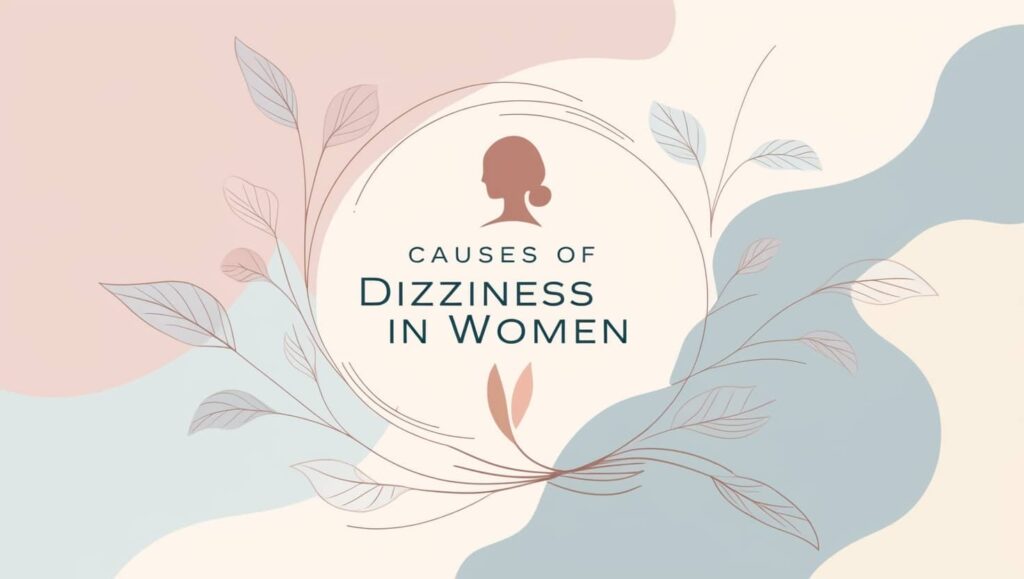Vertigo is a sensation of spinning or whirling, a health condition that can arise from many causes that affect the inner ear, including Benign paroxysmal positional vertigo (BPPV), Ménière’s disease, Labyrinthitis, or head injuries.
Vertigo can be very annoying and disrupt your life, and to overcome it you need to reach the correct diagnosis and the required treatment.
Now, How to Tell Which Ear Is Causing Vertigo?
You can find out simply by doing some home tests that we will review in the following paragraphs.
Symptoms That Help Identify the Affected Ear in Vertigo
To find out which ear is causing the dizziness, you can do the following maneuver:
- Start by sitting with two pillows behind you.
- Turn your head 45 degrees to the right side.
- As you turn, quickly lower yourself onto the pillows behind you.
- Stay in this position for one minute, then return to the sitting position.
- If you feel dizzy during this time, this means that the problem is in the right ear.
- If not, repeat the maneuver on the other side.
Causes of Vertigo and Ear Imbalances
There are many health problems that can cause dizziness and imbalance in the ear, the most important of which are inner ear problems, some types of medications, and brain injuries.
Here are the most common causes:
- Benign paroxysmal positional vertigo (BPPV): This is dizziness that occurs as a result of certain movements of the head
- Labyrinthitis or vestibular neuritis: This occurs as a result of a microbial infection in the inner ear that causes vestibular neuritis
- Meniere’s disease: A rare disorder that leads to fluid accumulation in the inner ear
- Poor circulation in the ear: One of the problems that causes dizziness
- Calcium debris in the semicircular canals: This can be one of the causes of dizziness
Medications that can cause dizziness and imbalance in the ear:
- Antibiotics.
- Anticonvulsants.
- Antidepressants.
- Anti-inflammatories
- Antifungals.
- Antihistamines.
- Antimalarials.
- Antihypertensives. (NHS , n.d.)
Treatments Based on the Affected Ear
Treatment depends mainly on the diagnosis. The first step in diagnosis is knowing How to tell which ear is causing vertigo.
Common treatments include:
Physical Therapy: Vestibular rehabilitation strengthens the vestibular system and trains other senses to compensate for dizziness.
Medical Treatments:
Medications:
For symptom relief (nausea, lightheadedness): Meclizine (Antivert, Bonine) or dimenhydrinate (Dramamine).
For infection or inflammation: Steroids (to reduce swelling) or antibiotics (to clear infection).
For Meniere’s disease: Diuretics (water pills) to reduce fluid buildup.
Specific Ear Treatments:
- Benign Paroxysmal Positional Vertigo (BPPV): Repositioning maneuvers like the Epley or Semont maneuver move calcium particles to a non-dizziness location.
- Meniere’s Disease: Gentamicin injections (to damage balance function) or steroid injections (to manage vertigo and reduce hearing loss risk) in the middle ear.
- Vestibular Neuritis: Steroid medications (corticosteroids) to reduce inflammation.
- Surgical Treatment: Surgery may be necessary for some conditions, such as removing an acoustic neuroma affecting inner ear function.
- Treatment of Underlying Conditions: Dizziness caused by problems like brain or neck tumors or injuries may improve when those underlying issues are addressed.
Tips to help treat dizziness:
- Drink plenty of water or other fluids to prevent dizziness from getting worse.
- Practice relaxation techniques such as deep breathing or meditation because anxiety affects your balance.
- Limit your intake of caffeine, alcohol, salt, and tobacco.
- Lie down in a dark, quiet room.
- Get up slowly and move slowly. Turn your head slowly to prevent dizziness.
- Use a cane if you need one to avoid falling.
- Sit or lie down as soon as you start to feel dizzy.
- Bend at the knees rather than the waist when picking something up.
References
- NHS . (n.d.). Retrieved from Vertigo
- PubMed. (n.d.). Retrieved from Diagnosis and Treatment of Vertigo and Dizziness








